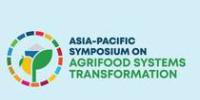GFAR Collective Actions within Key Focus Area (KFA) 1, which have been set out together by Partners in GFAR and endorsed by the GFAR Steering Committee for future development:
Empowering rural communities to shape their own futures
This Collective Action aims to help equip rural communities and agricultural development stakeholders with the capacity to shape and determine their own futures through participatory foresight skills. Participatory foresight process provide an inclusive space for decision making and for the exchange of perspectives on what farmers, researchers and other agricultural development actors consider as their most important innovation needs and priorities. This process aims to help farming communities better understand the challenges and opportunities for their own futures, and to aid better adoption of new research and innovation generated by researchers.
Interest and support for this Collective action has been expressed by regional bodies, such as the Forum for Agricultural Research in Africa (FARA) through the Africa Foresight Academy, and at the global level through the Foresight4Food Initiative.
Empowering rural communities as drivers of agricultural innovation
This initiative seizes the strategic moment of the launch of the International Decade of Family Farming 2019-2028 (IYFF+10), acknowledging that the products of agricultural research and the demands to support innovation of family farmers are mismatched. The Collective Action “Enhancing participatory processes between Family Farmers, Civil Society/Rural Communities, Research Institutes” aims at empowering family farmers and rural communities as drivers of agricultural research and innovation, recognizing the role of farmers in the whole process of research at three different levels: global, regional and local.
Four main components of the Collective Action were agreed upon the core group of WRF, Regional FOs, Local FOs, CSO/National Platforms, Research Centers, Universities and donor entities: i) transformation of research governance in favour of family farming, identifying strategic decision making spaces where farmers' organizations will participate directly with greater negotiation capacities to put their needs and capacities on political agendas; ii) documenting and sharing successful participatory research experiences for family farming with a view to reach a replicable and adaptable model for farmer-led innovation practices, processes and technologies; iii) capacity building of agricultural organizations, farmers and researchers in co-innovation, enhancing the collaboration between formal science and farmers' led experimentation and knowledge; iv) coordination and alliances between actors/initiatives of similar nature.
The initiative will bring more public attention to the need for transforming the governance of current agricultural research and innovation processes at various levels to respond to both the demands of family farming and the need for more appropriate knowledge generation and dissemination to serve their specificities.














